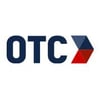
OTC Insights Team
Established in 1963, OTC Industrial Technologies (Ohio Transmission Corporation) is one of the largest industrial distributors & service providers in the United States. We're committed to seeing industrial operations advance through expert technical solutions & unmatched support using our years of experience.
Even after the supply chain issues and labor shortages of the previous year, and with uncertainties still ahead, manufacturers are continuing to show resilience. Companies are expected to thrive in the new year.
That said, it’s still a good idea to incorporate the latest insights into manufacturing, business, and technology trends as you plan and prepare for 2023. The steps you take now can protect your business or boost profits.
More Investment in Advanced Technologies
Manufacturers will continue to invest in new technology to lessen the impact of problems such as labor shortages, supply chain issues, increased demand, or rising material costs. The cost savings and productivity boosts from technology investment can be the difference between a successful year or business failure. One such technology is the smart factory. Smart factories combine machines, people, and data into an interconnected ecosystem that provides flexibility and resilience for production and processes.
The use of smart factory solutions can reduce dependency on foreign suppliers and manufacturers, as well as improve productivity and efficiency. These cyber-physical systems use advanced technologies such as artificial intelligence and machine learning to analyze data, drive automated processes, and prevent errors and waste.
Ongoing Supply Chain Disruptions
Unfortunately, supply chain disruptions are projected to carry on throughout the new year. Additional expected obstacles include inflation, increased freight costs, driver shortages, possible supplier shutdowns, political conflicts in sourcing territories, and climate change issues.
As a result, more manufacturers will likely insource work that would have been outsourced in the past. The goal of these efforts is more control over the brand image and pricing, as well as building stronger relationships with suppliers and preferred vendors.
Increased ESG Regulations
Additional Environmental, Social, and Governance (ESG) regulations to encourage corporate responsibility are likely to be implemented in the new year. Manufacturers are expected to comply with increased reporting requirements, ratings, and disclosures. While many of these regulations started in Europe, the SEC is also pushing to verify ESG disclosures. As companies are using ESG claims to boost investment, regulatory agencies are putting those claims under scrutiny.
Regulators will also require more disclosures for nonfinancial metrics. Many manufacturers have already begun to make operational adjustments across their value chains to meet new standards.
Employees Will Seek Better Working Conditions
Even as we move past the days of COVID-19 and the Great Resignation, employees will continue to demand better workplace conditions. These includes higher wages, flexible hours, more opportunities for promotion, and workplace wellness programs.
As manufacturers struggle with hiring and finding new workers, meeting employee demands will become a higher priority. This has resulted in companies enacting new programs and policies or changing how they manage operations and the workplace.
Product as a Service and Managed Services Gain Popularity
The Product as a Service (PaaS) arrangement is when manufacturers lease equipment or suppliers offer it as a subscription rather than selling it. This system allows customers to only pay for what they need, get support from the original equipment manufacturer, and have access to additional services to help enhance operations.
OTC’s DIRECTAIR® already provides a similar service for compressed air. Rather than paying for compressed air machines and managing all the upkeep, repairs, and maintenance, manufacturers buy compressed air directly from OTC. They pay only for the air they need without the capital expenses or overhead.
IIoT Continues to Increase in Popularity
IIoT, the Industrial Internet of Things, is the interconnection of unique devices within an existing internet infrastructure. This setup has enabled manufacturers to make more strategic decisions using real-time data including cost reduction, enhanced efficiency, improved safety, product innovation, and more.
Many industries like logistics and asset management have already seen measurable benefit from IIoT. Manufacturers are already using IIoT to great effect in areas like predictive maintenance. The use of IIoT will continue to grow as other production areas and business units will capitalize on the technology.
Push to Modernize or Move Past the ERP
Enterprise Resource Planning (ERP) is software that organizations use to oversee daily business activities from accounting to supply chain operations. Many manufacturers recognize how disruptive old and inefficient ERP systems are and have been reluctant to modernize their software. This is causing problems and limiting the business, especially as customers demand more from manufacturers.
Look for more manufacturers to move to cloud-based ERP systems, allowing them to better integrate with and support their customers. Other companies may recognize how limiting the monolithic ERP can be and may look to incorporate a smaller and more flexible solution that incorporates integrated but more specialized software solutions.
OTC Can Help Manufacturers Succeed in the New Year
Even with the challenges facing manufacturing in the new year, many companies see vast opportunities for growth and expansion. The companies better able to solve problems and overcome these challenges will see more opportunities.
If you have questions or are ready to overcome your business challenges or increase efficiency and productivity in 2023, then contact the team at OTC. Let us help you create a successful strategy for the new year.
Stay up to date
SUBSCRIBE TO OUR BLOGPosts by Tag
- General Manufacturing (102)
- Compressed Air Solutions (61)
- Automotive (35)
- Finishing and Dispensing (33)
- Rotating Equipment (31)
- Maintenance & Repair Services (22)
- Industrial Automation (21)
- Case Studies (19)
- Electronics & Semiconductor (16)
- Sustainable Manufacturing (12)
- Energy Efficiency (10)
- Filtration (9)
- Energy, Power & Utilities (8)
- Oil & Gas (6)
- Food & Beverage (5)
- Biotech & Pharmaceutical (4)
- Chemical & Petrochemical (3)
- Industrial OEMs (3)
- Steel & Metal Manufacturing (3)
- Aerospace (2)
- Agriculture (2)
- Packaging & Processing (1)
- Pulp & Paper (1)


